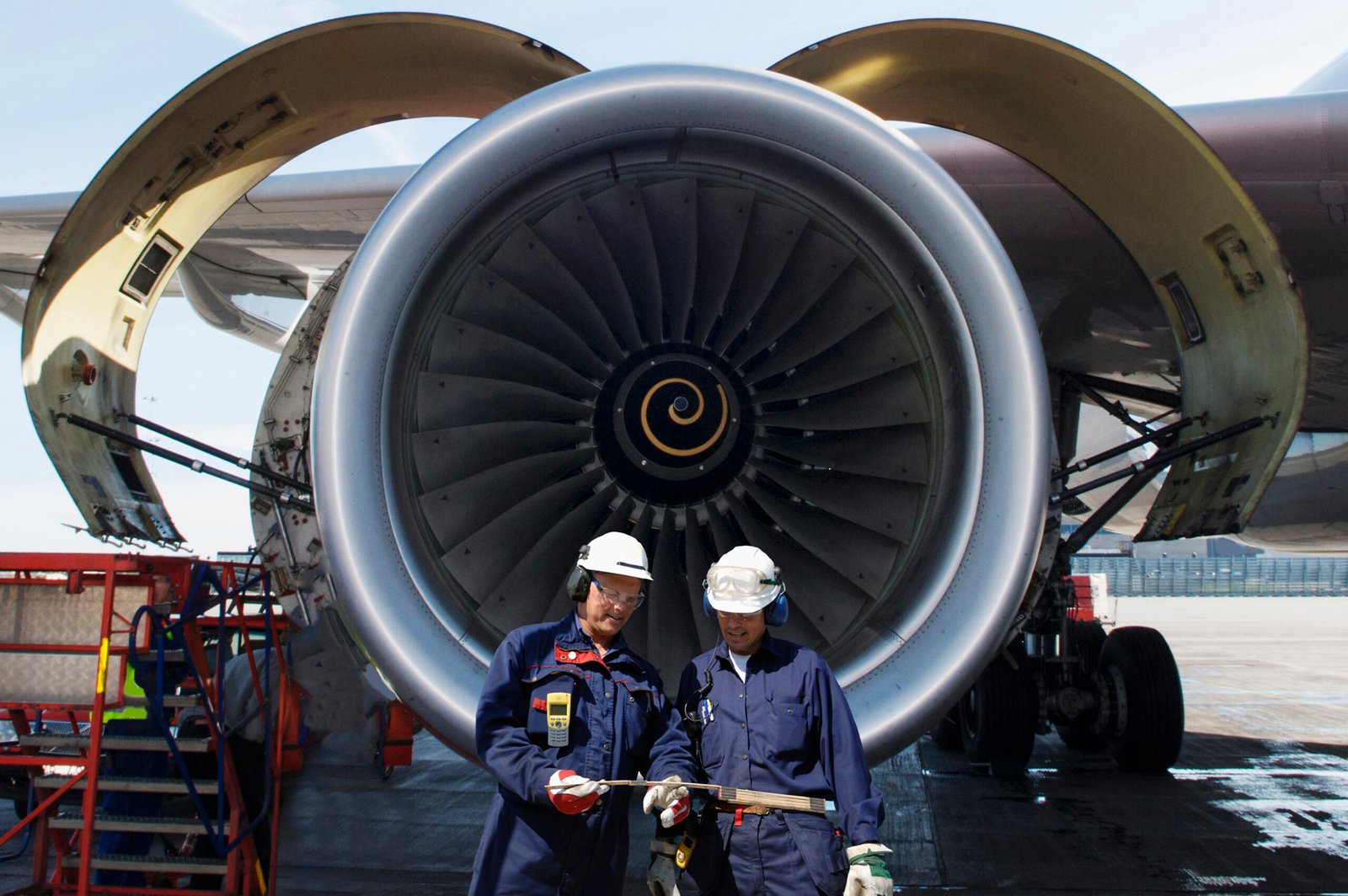Aviation Industry
Flight Paths: Exploring the Impact of Aviation on Global Connectivity
Aviation serves as the backbone of global connectivity, bridging vast distances and cultures in a matter of hours. As air travel continues to evolve, so too does the need for skilled professionals equipped with the knowledge and expertise to navigate this dynamic industry. In this post, we will explore various avenues for education within aviation, highlight some engaging resources for enthusiasts and professionals alike, and touch upon FAA-approved flight schools.
*Types of Aviation Courses**
When it comes to pursuing a career in aviation, numerous educational pathways exist. These courses can cater to diverse interests—ranging from piloting to aerospace engineering. Here are some common types:
1. **Pilot Training Programs**: These courses focus on preparing aspiring pilots with essential flying skills. They typically start with private pilot licenses (PPL) and progress through instrument ratings (IR), commercial pilot licenses (CPL), and even airline transport pilot licenses (ATPL).
2. **Air Traffic Control Training**: For those fascinated by managing air traffic, specialized programs teach students how to coordinate aircraft movements safely and efficiently.
3. **Aviation Management Degrees**: Combining business acumen with aviation principles, these programs prepare students for managerial roles within airlines or airports.
4. **Aircraft Maintenance Courses**: These technical programs train individuals in the maintenance and repair of aircraft systems, ensuring safety and compliance with regulations.
5. **Flight Dispatch Training**: This course prepares students to plan flight routes, manage fuel loads, and ensure that all regulatory requirements are met before a plane takes off.
The variety within aviation education reflects its multifaceted nature—offering something for everyone interested in joining this exhilarating field.
*Engaging Aviation Resources**
For anyone passionate about aviation or looking to keep abreast of industry trends, numerous blogs, websites, and social media platforms serve as excellent resources:
**Blogs/Websites**:
– *AirlineReporter.com*: A blog dedicated to news about airlines combined with personal experiences.
– *The Points Guy*: Focused on maximizing travel rewards through points accumulation.
– *FlyingMag.com*: Offers expert insights into flying techniques alongside aircraft reviews.
**Social Media Sites**:
– Follow hashtags like #AvGeek on Twitter or Instagram for stunning aerial photography and community discussions.
– Join Facebook groups such as “Pilots Without Borders” which connects aviators across the globe for humanitarian missions.
These platforms not only provide valuable information but also foster a sense of community among aviation enthusiasts.
*FAA Approved Flight Schools**
If you’re considering taking your first steps towards becoming a pilot or advancing your skills further, FAA-certified flight schools are essential destinations. They comply with strict federal standards ensuring quality training:
1. **Local Flight Schools**: Many regional airports host small flight schools that offer personalized training sessions tailored to individual needs.
2. **University Programs**: Several universities now feature robust aviation programs offering degrees along with practical flight experience at affiliated airports.
3. **Simulator Centers**: Advanced simulators provide an immersive learning experience without leaving solid ground! They allow pilots-in-training to practice emergency procedures or familiarize themselves with complex aircraft systems before actual flights.


In closing, the influence of aviation on global connectivity is profound—and it all begins with education! With various courses available catering to different interests within the field, countless online resources enriching our understanding of aviation trends—including FAA-approved institutions paving the way for future pilots—the sky truly is not just the limit; it’s merely another starting point!
The Sky’s the Limit: Innovations Transforming the Aviation Industry
In an era where technological advancements dictate the pace of progress, the aviation industry stands as a testament to innovation and evolution. From the ground up, future aviators are being equipped with skills that align with both emerging technologies and traditional practices. For those interested in entering this dynamic field, understanding the various educational pathways is crucial.
*Aviation Schools: Types of Courses**
When it comes to training for a career in aviation, options abound. Prospective pilots have several types of courses to choose from:
1. **Private Pilot License (PPL)**: This fundamental course introduces students to basic flying techniques, navigation, and safety protocols. Ideal for hobbyists or those contemplating a professional path.
2. **Commercial Pilot License (CPL)**: A step up from PPL, CPL coursework includes advanced flight maneuvers and regulations necessary for commercial flying.
3. **Airline Transport Pilot License (ATPL)**: Aspiring airline pilots will find this course essential; it encompasses more rigorous training and a deeper understanding of aviation laws.
4. **Flight Instructor Courses**: Once certified as a pilot, many opt to become instructors themselves. These courses focus on teaching methods alongside flight operations.
5. **Aircraft Maintenance Technician Programs**: Not everyone who loves aviation wants to fly; these programs train individuals in aircraft repair and maintenance, ensuring pilot safety and airworthiness.
6. **Unmanned Aircraft Systems (UAS) Training**: With drone technology soaring in popularity, specialized courses prepare students for careers involving UAVs across various industries.
7. **Air Traffic Control Programs**: These programs emphasize communication skills and operational procedures vital for managing air traffic effectively.
Each type of course opens doors to unique career opportunities within the vast landscape of aviation.
*Aviation Blogs, Websites, Social Media Sites**
Staying updated on industry trends is essential for anyone involved in aviation—whether it’s aspiring professionals or seasoned veterans. Here’s a selection of valuable resources:
**Blogs**:
– *The Air Current*: Focuses on market analysis and insights into airline strategies.
– *Flying Magazine*: Offers tips from experienced aviators along with gear reviews.
– *Jetwhine*: A lively community discussion platform covering all things related to commercial aviation.
**Websites**:
– *AOPA.org*: The Aircraft Owners and Pilots Association provides extensive resources for pilots.
– *FAA.gov*: The Federal Aviation Administration’s official site offers regulations, guidelines, and updates crucial for pilots.
– *FlightAware.com*: Real-time tracking of flights worldwide—perfect for data enthusiasts!
**Social Media Sites**:
– Follow accounts like @AvGeekCommunity on Instagram or Twitter which celebrate all aspects of flight culture.
– LinkedIn groups such as “Aviation Professionals” foster networking among industry insiders.
These platforms not only share knowledge but also connect individuals passionate about aviation globally.
*FAA Flight Schools/Simulators**
The Federal Aviation Administration oversees numerous accredited flight schools throughout the United States that cater to different skill levels and specialties. Many institutions offer state-of-the-art simulators that mimic real-life flying experiences without leaving the ground—a fantastic tool for practicing maneuvers safely before taking off into actual skies!
Simulators provide an invaluable resource by allowing students to encounter challenging scenarios within a controlled environment while mastering their technical skills without any risk involved.
In conclusion, whether you’re planning your first solo flight or considering a career change into air traffic control or aircraft maintenance, there has never been a better time to explore what aviation has to offer! With innovative educational programs at your fingertips combined with cutting-edge technology continually reshaping how we think about air travel and safety standards—the sky truly is the limit!

Aviation Careers: Navigating the Skies of Opportunity
The aviation industry is a sprawling landscape of opportunities, beckoning those who dream of soaring through the skies. Whether you envision yourself as a pilot, air traffic controller, aircraft mechanic, or flight attendant, various educational pathways can set you on the right course. Understanding what aviation schools offer can help you find your niche in this dynamic field.
*Types of Aviation Courses**
Aviation schools provide a plethora of courses tailored to different career aspirations. Here are some types to consider:
1. **Pilot Training Programs**: These courses focus on imparting essential flying skills and knowledge about aircraft operations. They often include both ground school—where students learn aerodynamics, navigation, and weather—and in-flight training.
2. **Air Traffic Control (ATC) Programs**: ATC courses teach students how to manage aircraft safely and efficiently within controlled airspace. Aspiring controllers gain insight into communication protocols and radar systems through simulation exercises.
3. **Aircraft Maintenance Engineering**: This technical pathway equips students with hands-on skills required for maintaining and repairing aircraft. Courses cover everything from electrical systems to structural integrity and comply with FAA regulations.
4. **Aviation Management Degrees**: Ideal for those aiming for leadership roles in airlines or airports, these programs blend business principles with aviation-specific subjects like logistics and safety management.
5. **Flight Dispatch Training**: Flight dispatchers play a crucial role in ensuring that flights operate smoothly by planning routes and managing schedules. Specialized courses prepare students for this fast-paced environment.
6. **Specialized Certifications**: Many aviation schools also offer short-term certifications in areas such as drone piloting or safety management systems—perfect for those looking to enhance their employability without committing to long-term education.
With so many options available, potential aviators have plenty of choices tailored to their interests!
*Online Resources for Aviation Enthusiasts**
In today’s digital age, staying informed is more accessible than ever! There’s an abundance of blogs, websites, and social media platforms dedicated to aviation topics:
*Blogs*: Check out sites like *AirlineReporter*, which features news about airlines; *Flying Magazine*, offering tips from seasoned pilots; or *The Air Current*, focusing on industry analysis.
*Websites*: The FAA’s official site is invaluable for information on regulations and licensing requirements. Additionally, organizations like AOPA (Aircraft Owners and Pilots Association) provide resources tailored for pilots at all levels.
*Social Media*: Platforms like Instagram showcase stunning aerial photography under hashtags such as #aviationlovers or #flyinghigh. Twitter accounts like @AvGeekGirl share daily insights into aviation trends that can help broaden your knowledge base.
*FAA Flight Schools & Simulators**
When it comes to practical training, FAA-approved flight schools are your best bet—they meet strict guidelines ensuring quality education. Institutions such as Embry-Riddle Aeronautical University and ATP Flight School have garnered reputations as leading providers of pilot training across the United States.


For those seeking hands-on experience without immediate access to an aircraft, simulators serve as excellent alternatives! Advanced flight simulators mimic real-life scenarios allowing aspiring pilots to practice maneuvers safely before taking off into the skies themselves.
As you embark on this exciting journey through the world of aviation careers, remember that every takeoff begins with a solid foundation—education being paramount! Equip yourself with knowledge from reputable sources while honing your skills at top-notch institutions, paving your way toward a rewarding career navigating the skies of opportunity!
The Future of Flight: Innovations Reshaping the Aviation Industry
The aviation industry stands on the precipice of a remarkable transformation. As technology surges ahead, educational institutions are evolving to meet the demands of this ever-changing field. Today’s aspiring aviators have access to an array of specialized aviation schools offering diverse courses that cater to their ambitions.
*Aviation Schools and Course Types**
In the realm of pilot training, schools typically fall into several categories, each designed to fulfill specific needs.
1. **Traditional Flight Schools**: These institutions focus primarily on hands-on flight training, blending ground school with actual flying hours. Students often earn their Private Pilot License (PPL) and move on to more advanced certifications.
2. **Community Colleges**: Many community colleges offer associate degrees in Aviation Technology or Professional Pilot Programs. These programs provide a more comprehensive education, blending technical skills with general studies.
3. **Four-Year Universities**: For those seeking a bachelor’s degree, universities like Embry-Riddle Aeronautical University or Purdue University offer robust aviation programs that cover everything from aeronautics to air traffic control and management.
4. **Online Courses and Simulator Training**: With technological advancements, online platforms now provide virtual training modules for aspiring pilots or mechanics who want flexibility in their learning schedules without sacrificing quality education.
5. **Specialized Training Centers**: Focused on niche areas such as drone piloting or helicopter operations, these centers equip students with cutting-edge skills tailored for specific segments of aviation.
As future aviators embark on their educational journeys, they can also tap into a wealth of resources available online through blogs and websites dedicated to all things aviation.
*Aviation Blogs and Websites**
The digital landscape hosts numerous blogs and websites teeming with valuable insights about the industry:
**AirlineReporter.com**: This site covers airline news and travel tips while sharing personal experiences.
**FlyingMag.com**: A go-to resource for enthusiastic pilots featuring articles on aircraft reviews and pilot stories.
**Jetwhine.com**: Offering commentary on various facets of aviation, from policy discussions to technological innovations.
**AvGeekery.com**: Celebrating aviation enthusiasts’ passion through exciting stories about aircraft history and modern developments.
Social media platforms have also become pivotal in connecting aviation lovers:
Twitter has vibrant communities under hashtags like #AvGeek or #PilotLife where professionals share experiences.
Instagram showcases breathtaking aerial photographs through accounts like @aviationdaily or @planespotting which inspire future generations.
Facebook groups dedicated to pilots allow members to exchange tips and networking opportunities seamlessly.
*FAA Flight Schools & Simulators**
For practical training rigorously aligned with government standards, FAA-approved flight schools provide structured curricula ensuring student safety while honing essential skills. These accredited institutions offer comprehensive programs covering everything from private licenses to advanced ratings.
Additionally, simulators play an increasingly crucial role in pilot training by providing safe environments where students can practice emergency procedures without real-world risks. Advanced full-motion simulators accurately replicate cockpit environments allowing trainees to encounter various scenarios—essential for building confidence before taking real flights.
In conclusion, as innovations continue reshaping the horizon of flight education—from diverse course offerings at aviation schools to dynamic online platforms for knowledge-sharing—the future looks promisingly bright for aspiring aviators around the globe. The journey may be challenging but is undoubtedly exhilarating; equipped with cutting-edge tools and information today’s learners are poised not just to fly but soar!

Soaring High: The Future of Aviation Technology
The aviation industry is on the cusp of a remarkable transformation, driven by technological innovations and a surge in interest among aspiring pilots and aviation enthusiasts. As we soar into the future, understanding the educational pathways available can empower the next generation of aviators.
### Aviation Schools: Types of Courses
Aviation schools offer an array of programs tailored to fit various interests within the field. For instance, if you dream of becoming a pilot, look for flight training programs that provide Private Pilot License (PPL), Instrument Rating (IR), and Commercial Pilot License (CPL) courses. These comprehensive programs often blend classroom instruction with hands-on flight experience, allowing students to gain practical skills using state-of-the-art aircraft.
For those not aiming to take to the skies themselves, there are numerous options in aviation management or maintenance programs. Aviation management courses equip students with knowledge about airline operations, airport management, safety regulations, and more—perfect for those interested in the business side of aviation. Moreover, aircraft maintenance technician (AMT) programs are vital for anyone looking to work behind the scenes; they cover everything from basic mechanical skills to advanced avionics systems.
Furthermore, specialized training is available in areas such as drone technology and unmanned aerial systems (UAS). With drones revolutionizing industries from agriculture to surveillance, these courses prepare students for careers at the forefront of this rapidly evolving sector.
### Aviation Blogs, Websites & Social Media Sites
To keep abreast of advancements in aviation technology and trends within the industry, several online resources are invaluable. Blogs like “AirlineReporter” provide insights into travel experiences and industry news while “Flying Magazine” covers everything from pilot tips to gear reviews. For those who appreciate multimedia content, “FlightChops” on YouTube captivates audiences with engaging flight videos that blend education and entertainment.
Social media platforms also play a pivotal role in connecting aviation enthusiasts worldwide. Twitter accounts like @AviationWeek feature breaking news updates alongside insightful articles on emerging technologies. Instagram users can follow accounts like @aircraftspotting for breathtaking glimpses of planes around the globe or @pilotlife for a peek into daily life as a pilot.
Additionally, Facebook groups such as “Aviation Enthusiasts” foster community discussions where members share their experiences and advice on everything from flight training tips to career opportunities.
### FAA Flight Schools: Airplane Schools & Simulators
When considering flight training options in America, FAA-accredited schools stand out for their rigorous standards and quality education. Organizations like “ATP Flight School” offer accelerated programs designed for individuals eager to fast-track their journey toward becoming professional pilots.

Moreover, simulator training has revolutionized how aspiring pilots learn essential skills without leaving solid ground. Advanced simulators mimic real-world flying conditions with astonishing accuracy—providing trainees an opportunity to practice emergency scenarios or refine their navigation techniques without risk or expense associated with actual flight hours.
In conclusion, as we gaze toward a future filled with possibilities—from electric aircraft designs reducing our carbon footprint to drones redefining logistics—the need for skilled aviators remains paramount. By embracing diverse educational paths through various aviation schools combined with leveraging online resources and innovative simulation technologies, future aviators can prepare themselves not only to navigate today’s skies but also shape tomorrow’s aerial landscape—and that’s truly soaring high!




